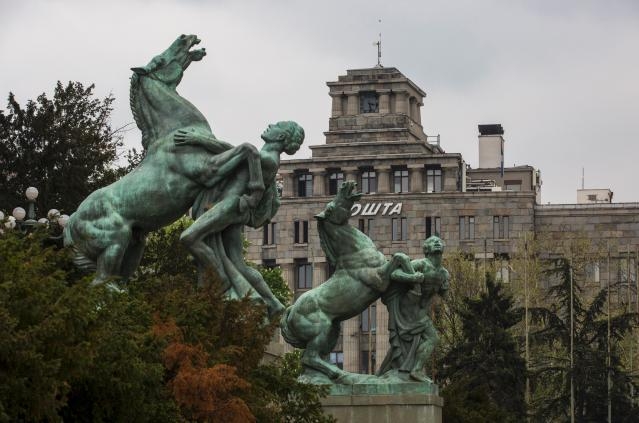High Representative Josep Borrell and Commissioner for Neighbourhood and Enlargement Olivér Várhelyi issued a joint statement on Tuesday about reported irregularities in the early parliamentary elections in Serbia last Sunday.
The elections were the third in less than four years and resulted in the Serbian Progressive Party, the ruling party of Aleksandar Vucic, the Serbian president, regaining its parliamentary majority with 47 % of the votes. The previous two elections took place in June 2020 and April 2022. The elections, announced by the president on 1 November, took place in a tense atmosphere.
As in the 2020 elections, which were boycotted by most of the opposition, the EU statement refers to the preliminary findings and conclusions by the international election observation mission organized by the OSCE Office for Democratic Institutions and Human Rights (ODIHR).
The OSCE mission included 361 observers from 45 countries, the majority of them ODIHR-deployed experts. Long-term and short-term observers from OSCE Parliamentary Assembly (OSCE PA), the Parliamentary Assembly of the Council of Europe (PACE), and the European Parliament (EP) participated also.
In light of their findings, the EU “concluded with concern that the electoral process requires tangible improvement and further reform, as the proper functioning of Serbia's democratic institutions is at the core of Serbia's EU accession process”. The statement also called on the Serbian political leadership to ensure a constructive, inclusive dialogue across the political spectrum.
According to the report, pressure on voters as well as the decisive involvement of the President and the ruling party’s systemic advantages undermined the election process overall. The report lists shortcomings such as uneven playing field and vote buying. Procedural deficiencies included frequent cases of overcrowding, violations of the secrecy of the vote, and numerous instances of group voting.
“While the elections were technically well-organized, they unfolded in the midst of a socially and politically divided landscape,” said Reinhold Lopatka, Special Co-ordinator and leader of the short-term OSCE observer mission.
“The decisive involvement of the President dominated the electoral process, and the use of his name by one of the candidate lists, together with bias in the media, contributed to an uneven playing field.”
Public trust is undermined
As in previous reports, the elections observation mission stopped short of assessing whether the elections were “free and fair”. Elections are too complex for us to reduce their outcome to two words, the OIDHR office has said in the past.
“While the Serbian authorities organized the elections efficiently on a tight schedule, the opposition’s lack of access to the media and absence of genuine analytical reporting impacted voters’ ability to make an informed choice,” said Ambassador Albert Jónsson, who headed ODIHR’s election observation mission.
The legal framework in Serbia should provide an adequate basis for the conduct of democratic elections but several key issues remain outstanding, according to the observers.
These include measures to prevent misuse of public office and state resources, separation between official functions and campaign activities, and effective mechanisms to prevent intimidation and pressure on voters. Measures for ensuring vote secrecy are still insufficient, at odds with previous recommendations from ODIHR and the Venice Law Commission (an advisory body of the Council of Europe).
“This further undermines public trust in democratic institutions and electoral processes, commented Stefan Schennach, Head of the PACE delegation. “Terminating parliamentary mandates ahead of time also prevents parliaments from working properly, preparing thorough and inclusive legislation and holding the executive to account, which is key in a parliamentary democracy.”
The findings came hardly as a surprise to the European Commission after its own assessment of Serbia in the enlargement package last November. The Commission’s assessment of Serbia was that, in line with the negotiating framework, much more progress could have been achieved in the accession negotiations.
The Commission was well aware of the shortcomings in the electoral framework and wrote in the country report on Serbia that it was “crucial that all outstanding and recent recommendations by OSCE/ODIHR and Council of Europe bodies are fully implemented, in a transparent and inclusive process and well ahead of the next elections”. This did not happen.
Nothing can be more important than a functioning parliament to deliberate on and enact all the legislation (EU acquis) which is required to join the EU after meeting all conditions. Will the findings in OSCE/ODIHR’s report have an impact on the accession negotiations with Serbia?
“Issues relating to democracy and elections and how they are conducted are a fundamental part of the accession process,” Eric Mamer, the Commission’s chief spokesperson, replied to The Brussels Times at the press conference on Tuesday.
M. Apelblat
The Brussels Times

